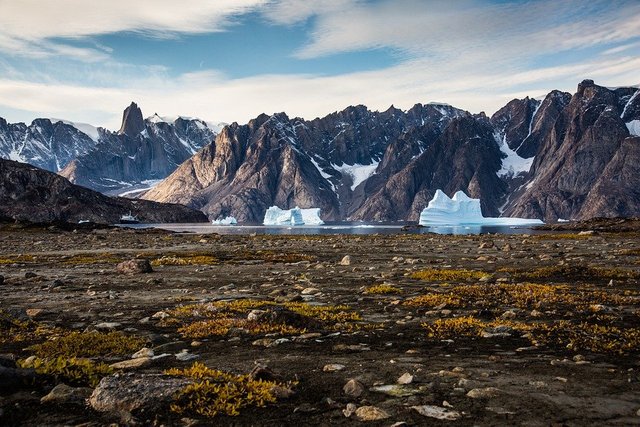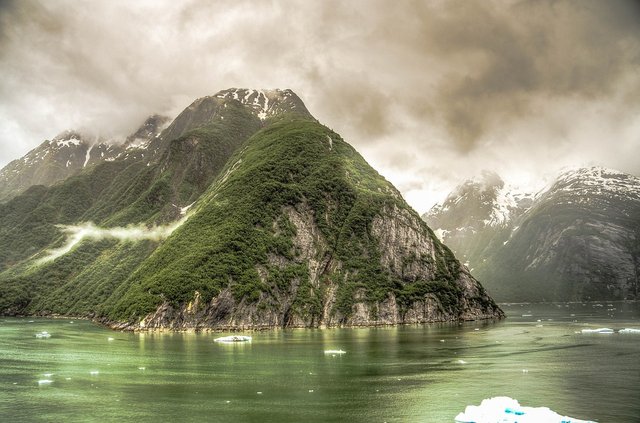
Deforestation is an anthropogenic induced practice that year after year registers constantly increasing levels on a global scale, an element that has a direct impact on climate change patterns, since deforestation generates increases in CO2 concentrations at the ecosystem level.
In this sense, and even though the pandemic caused by covid-19 may have provoked a reduction in the levels of deforestation, and with it a clear decrease in CO2 emissions into the atmosphere, the main reference gas in the greenhouse effect and climate change, it is worth mentioning that despite these reductions, polar ecosystems continue in a frank deterioration.

Fig. 3 Polar ecosystems continue to deteriorate sharply. Image of public domain, Author: Mariamichelle, 2014
Although humanity is living a crucial moment, where the most urgent thing is to stop the pandemic, intuitively it will have to look back and analyze the time that has been lost to tackle the climate emergency, because, according to recent research, there is a constant meltdown in the polar regions, where deglaciated surfaces (without ice) highly colonized by lichens, algae and mosses are currently being appreciated.
Day after day, new deglaciated surfaces (without ice) covered by cryptogamic areas (polar soils discovered with enzymatic and bacterial potential) are registered, an action that simultaneously generates modifications in the levels of water bodies such as oceans, seas, lakes, rivers, and groundwater, and with it the loss of extensive terrestrial areas.
In closing, it is necessary to remember that this retreat of glaciers and the consequent biological succession that has been developing in polar ecosystems, are reasons for reflection in the search to stop the irrational practices of deforestation that are executed on the planet, because all this will bring distortion in the normal climate behavior and therefore adverse climatic conditions.
BIBLIOGRAPHICAL REFERENCES CONSULTED:
[1] Khan A Why would sea-level rise for global warming and polar ice-melt?. Geoscience Frontiers. 2012; 10: 2. Article: Online access
[2] Olech M., Maja L., Agnieszka A., and Hubert M Contemporary Changes in Vegetation of Polar Regions. Papers on Global Change IGBP. 2011; 18; 1: 35 – 51. Article: Online access
OBSERVATION


Hi @lupafilotaxia.
Certainly if we manage to stop or reduce deforestation on our planet for sure we could quantify excellent results at the level of our planet in relation to climate change and polar ecosystems.
Greetings and thanks for your contribution
Downvoting a post can decrease pending rewards and make it less visible. Common reasons:
Submit
Greetings dear professor @carlos84
Good reading, I believe the same if we manage to eradicate induced deforestation, we will be changing climate imbalances for favorable scenarios for our ecosystems.
Be well.
Downvoting a post can decrease pending rewards and make it less visible. Common reasons:
Submit
Good evening. Described like this, the situation is alarming and more because many, we do not know the details, but humanity if no action is taken will live the consequences, as it happens with the pandemic. Thank you very much, very informative.
Downvoting a post can decrease pending rewards and make it less visible. Common reasons:
Submit
Greetings @ellieth
Correct if forceful actions are not taken we will live the worst consequences, and this although nobody wants it to happen, nothing is done to avoid the disproportionate deforestation.
Be well.
Downvoting a post can decrease pending rewards and make it less visible. Common reasons:
Submit